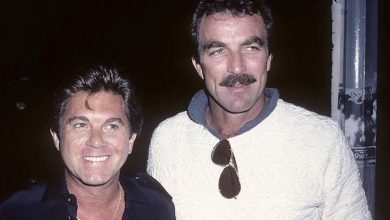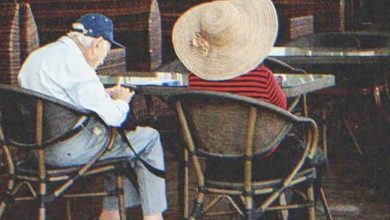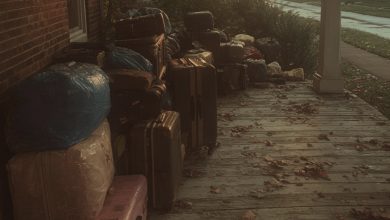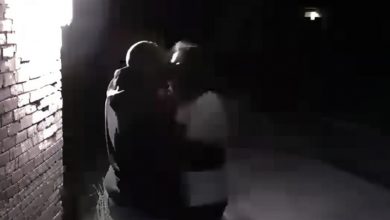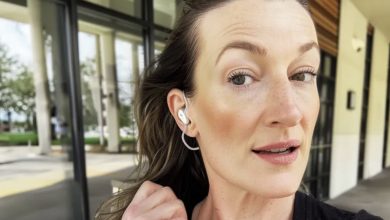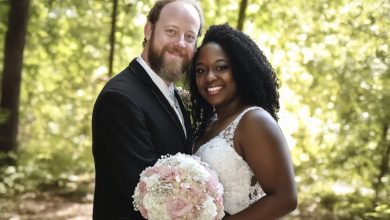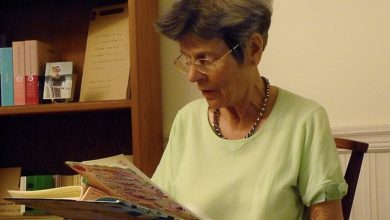My husband wasn’t home when my father-in-law urged me to break the bathroom tile; behind it I found a hole, and inside it was something horrifying.

It started like any other quiet evening. I was in the kitchen, sleeves rolled up, warm water running, washing plates and glasses. My son was next door playing with the neighbors’ kids. My husband had stepped out to run a few errands. The house felt calm and normal. Then I sensed a presence behind me, the kind of feeling that makes you straighten your back without knowing why. I turned. It was my father-in-law.
His face was tight, the muscles around his mouth set in a hard line. His eyes were sharp and restless, the way a person’s eyes get when they are watching for danger.
“We need to talk,” he whispered, so low I almost didn’t hear him over the tap.
“What’s wrong?” I asked, drying my hands on a towel. A small worry rose inside me, nothing more than a ripple at first.
He stepped close—too close—and lowered his voice even more, as if the walls could listen.
“As long as your son isn’t here,” he said, “go to the bathroom, take a hammer, and break the tile behind the toilet. Don’t tell anyone. No one must know.”
I let out a short, nervous laugh. “Break the tile? Why would I ruin the bathroom? We just finished the renovation. We’re going to list the house soon.”
He cut me off, gripping my fingers with his thin, bony hands—far stronger than I expected. “Your husband is lying to you,” he said. “The truth is behind that tile.” 😲
There was something in his eyes—fear, real fear—that I could not ignore. It wasn’t the jumpy fear of someone who scares easily. It was the heavy fear of a man who has seen too much and kept it inside for far too long. His look held me where I stood. The ripple in my chest became a wave.
I tried to brush it away. I told myself he was old and maybe confused. I told myself I would feel ridiculous later if I did what he asked. But curiosity has a way of growing roots. The more I tried to push the idea out, the more it held on.
Half an hour later, the house was still empty. I went to the bathroom. I locked the door. I stood facing the white wall where the toilet sat, the tiles smooth and perfect, each line of grout neat. My husband had laid those tiles himself, carefully and proudly. I remembered the day he’d finished them, the way he’d wiped sweat from his forehead and smiled. Break them? I thought. What if my father-in-law is just confused? What if I damage the wall for nothing?
Even so, my hands opened the closet. I took out the hammer. I stood for a long time, the metal cold in my palm, my heart steady but loud. Then, almost without wanting to, I raised the hammer and brought it down.
The first strike was light. The tile cracked like an eggshell. The second hit was harder; a corner of the tile broke free and fell onto the floor with a dull, hollow clack. I held my breath, bent down, and shone my phone’s flashlight into the gap.
Behind the tile there was a dark space—not just a gap for pipes, but a small, intentional cavity cut into the wall. The beam of light slid over rough edges and shadows. Something was inside.
My fingers shook as I slid them into the opening. They touched plastic—thin, crinkled, the kind that makes a dry rustling sound. I pulled gently. A small bag came free, yellowed by time, wrinkled and old. For a second I almost laughed at myself. A bag? That’s it? It looked harmless. But when I opened it and tilted it toward the light, a wave of cold moved through me so fast I could not breathe.
Inside were teeth.
Real human teeth. Not a few—many. Dozens. Maybe more. Some small. Some larger. Some with roots, some smooth. All of them the pale, wrong color of something that should not be in a bag, in a wall, in my bathroom.
My knees went weak and I slid down until I was sitting on the cold tile floor. I pressed the bag to my chest as if hugging it would make it disappear. The room spun a little. I heard the hum of the fan and the distant sound of a car passing outside, as if the world were going on as usual while mine tilted on its side.
This can’t be real. The sentence flashed in my mind like a warning light. But the teeth were real. The plastic was real. My hands were real, and they were shaking.
I didn’t know what to do. Call the police? Call my husband? Call a friend? I stared at the door, at the lock, at the white wall with its broken tile. I felt like a thief in my own house, caught doing something secret and terrible, even though I had done nothing wrong.
In the end I did the only thing I could think of. I put the teeth back in the bag and carried it to the kitchen. My father-in-law was sitting at the table, elbows on the wood, hands folded like a man waiting for a verdict. When he saw the bag, his shoulders dropped. He let out a long, old sigh, the kind that seems to come from the bones.
“So you found them,” he said, tiredly.
“What is this?” My voice came out much louder than I meant it to. I lowered it, but it still shook. “Whose are they?”
He didn’t answer at once. He looked at the window, at the sink, at the floor. I had the sense he was measuring the room, the hour, and the weight of the words in his mouth.
“Your husband,” he said at last. “He is not the man you think. He took lives. He burned the bodies. Teeth don’t burn. He kept them. Then he hid them here.”
I stared at him. The words didn’t fit in my head. They were like a shirt the wrong size—I couldn’t pull them over my understanding. My husband? The father of my son? The man who fixed our leaky taps and tied our boy’s shoelaces and installed these very tiles?
“You knew?” I whispered.
He lifted his eyes to mine. There was no relief in them, only a deep, gray tiredness and something like shame. “I kept silent,” he said. “For too long, I kept silent. But now—you must decide what to do.”
Something shifted inside me. The floor felt firm again, but my life did not. The path I had been walking—wife, mother, house, plans—wasn’t a path anymore. It was a cliff edge. One more step and I would fall.
What Came Before
I wish I could say there had been clear signs, red flags, warnings I ignored. There were small things, of course, things that now grow sharp and bright when I look back at them. My husband sometimes woke at night and stood in the dark by the window. He kept a drawer in his workshop locked, though we never kept secrets about money or tools. He did the bathroom renovation himself, even though we had talked about hiring a professional. “I want to do it right,” he’d said, smiling. “These hands can still make a straight line.”
And he had indeed made straight, clean lines—so straight they hid a pocket in the wall I never knew was there.
There had been other small oddities. He didn’t like dentists. He never watched crime shows, said they were stupid. He knew too much about fire—how hot it burned, what it did to things, how it left almost nothing behind. At the time, I thought he had picked up facts from videos online. He liked learning. He liked fixing. He liked making things neat.
He loved our boy. I don’t question that. He taught our son how to ride a bike. He made paper airplanes and launched them from the porch. He took him to the park and came home with grass stains and happy smiles. That is the part that hurts the most now. If what my father-in-law said was true, then the man who tucked our child into bed at night had also done things too terrible to name.
I didn’t sleep that night. I sat at the kitchen table with the bag in front of me, a small, awful moon on the wood. My father-in-law dozed in the chair with his head tipped back and his mouth slightly open, the lines of worry still on his face.
I kept thinking of the conversation we had not had yet: the one with my husband. I heard the door in my mind, the key in the lock, his footsteps in the hall. I saw myself meeting his eyes, asking a question that would either shove our life back into place or break it for good.
Toward dawn, my father-in-law woke. He looked older, smaller. I made tea. He held the cup with both hands as if it were the only warm thing in the world.
“Why now?” I asked. “Why tell me now?”
“I am not strong anymore,” he said. “I cannot carry it. And he… your husband… plans to sell the house, yes? I don’t know where he would move them next. I do not know what he would do. I only know the truth must not move again.”
We sat in silence. Birds began with the first thin sounds of morning. A truck went by. Somewhere a dog barked and then settled. Ordinary noises, all of them, and yet they felt strange, as if the world should be quieter for a moment while we decided what to do.
The Choice
By noon I had made a plan, simple and clear. I would keep my son at the neighbors’ a little longer. I would wait for my husband to come home. I would ask him to sit down at the table. I would place the bag between us. I would watch his face and listen to his answer. Then I would choose the police, or I would choose to run, depending on what he said and how he said it.
But when the front door finally opened, my body parted from my plan. It rushed to the hall. It took in his shape—familiar, beloved. It remembered ten years of dinners and jokes and small kindnesses. It remembered the day he had held our boy for the first time and cried. For a moment the two truths—my husband the gentle father and my husband the man my father-in-law had described—stood side by side in my mind like two strangers wearing the same face.
He kissed my cheek. He put bags on the counter. “They didn’t have the good tomatoes,” he said. “I got apples instead.”
I could not speak. I pointed to the table. He walked over and saw the bag. He looked at me. He looked at his father. His lips pressed into a thin line.
“What is this?” he asked.
“Open it,” I said. My voice sounded far away.
He did not touch it. He did not sit down. He stood very still, as if the floor had become ice and one wrong move would send him crashing through.
“Open it,” I said again, quieter now.
He closed his eyes, then opened them and shook his head once, a small, tired motion.
“Please,” I said.
He took the bag. He opened it. He looked inside for one second. Then he closed it and set it down. He did not deny. He did not explain. He did not tell stories about old dental work or Halloween props or anything that could have been a lie. He only said, in a voice I had never heard from him before, “I always intended to tell you.”
The room changed shape around me. It grew both larger and smaller. My father-in-law began to cry, a thin sound like paper tearing.
“Why?” I asked. My hands were calm now. My words were clear. “Why?”
He leaned on the back of the chair. He watched the window. He said nothing. Silence settled between us, heavy as concrete.
“In the bathroom wall?” I asked. “In our house?”
He swallowed. “Teeth don’t burn,” he said, as if that were an answer. It wasn’t. It was only a fact.
I picked up my phone. My father-in-law reached for my sleeve, then let go. My husband watched me with eyes that looked like the sea on a dark day—deep, wide, and dangerous.
I did not call the police. Not then. I called my neighbor. “Can my son stay a bit longer?” I asked. “We’re in the middle of something.” She said yes.
I put the phone down. I looked at my husband and spoke a simple truth. “My life is not the same now.”
He nodded. “I know.”
“I am going to the station,” I said. “You can come with me, or I can go alone.”
He looked at his father. He looked at me. He looked at the bag.
“I will come,” he said.
The Walk to the Door
We didn’t speak much as we put on our shoes. The air in the house felt thick, as if dust had filled it and settled in my lungs. I picked up my purse. My husband took his coat from the hook. My father-in-law stayed seated, both hands around his tea as if it could warm him enough to face what was next.
When we reached the door, my husband paused. “Our son,” he said, and his voice broke on the word.
“I will protect him,” I said. “From this. From anything I can.”
He nodded again. Then we stepped outside, into a day that looked like any other—blue sky, a few light clouds, children’s voices down the street. The world did not care what we were about to do. But my world had shifted for good.
We walked to the car without touching. The bag of teeth rested in a small box on my lap. I held it as if holding a sleeping animal, careful, steady, afraid to move too fast.
I don’t know what will happen next in your eyes, reading this. Maybe you think I should have run. Maybe you think I should have called first and not said a word to him at all. I can only tell you what I did with the truth that came out of a hole in my bathroom wall: I picked it up. I faced it. And in that moment, on that ordinary street, I understood that the life I had before would not return.
My father-in-law’s last words to me before we left were simple. “I’m sorry,” he said. “I chose silence for too long. Do not choose it now.”
I won’t. I can’t.
What I saw behind the tile cannot be unseen. What I learned cannot be unknown. The path ahead is not clear or easy. But it is real. And it is mine to walk—for myself, for my son, and for the future that must be honest, no matter how frightening the truth may be.

